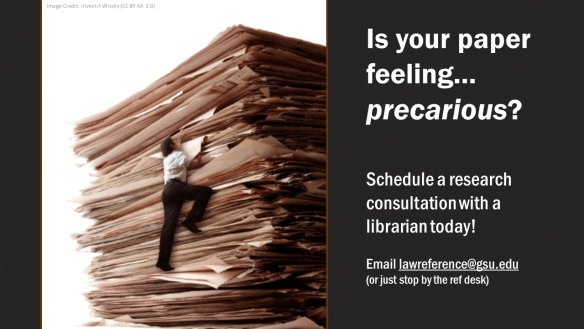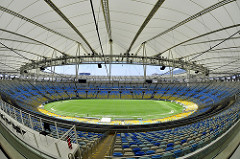Researching a paper can be intimidating. In my experience, this emphatically applies to many situations where the paper in question is for a law school course. Most law students have only just recently become familiar with the fundamental sources and strategies of legal research, and applying them to a lengthier treatment of a multidimensional (and often interdisciplinary) topic adds another layer of complexity.

Fortunately, your friendly neighborhood librarian is here to help, in the form of a research consultation. We are available to meet with you one-on-one to give you highly individualized advice on researching your paper. This includes help with many different aspects of the paper-writing process, including refining your thesis, checking for preemption, developing a research plan, identifying relevant resources, finding authorities that support your arguments, and more.
Efficient, high-quality research can make a big difference with any paper. Research can be very path-dependent, and the strategies you choose earlier in the process will lead you to different sources, and those sources will inevitably shape your arguments and ideas in the final product. Impeccable research isn’t just something you do to build an impressive footnote count! (Although a consultation will undoubtedly help you with that as well.)
Research consultations are not only extremely helpful, they are also very easy to schedule. To do so, you can hit us up at lawreference@gsu.edu, email your personal librarian, or simply stop by the reference desk. With that high degree of convenience in mind, I’m going to close out this blog post by stridently demanding that you stop whatever you’re doing and schedule a research consultation right now. I mean, don’t you want to write a better paper?




You must be logged in to post a comment.